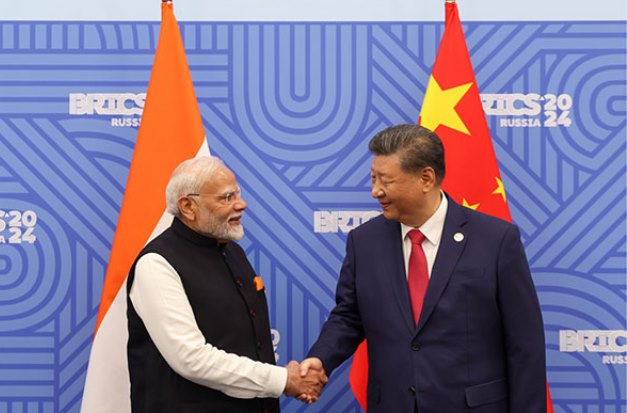In the midst of two extreme views about the recently concluded BRICS summit at Kazan in Russia–first, that it represented the forging of a new world order to challenge the West; and the second (quite opposite to the first), that it meant no more than mere optics–was a sobering statement by India’s Prime Minister Narendra Modi that really stood out. Modi said: “We must be careful to ensure that this organisation does not acquire the image of one that is trying to replace global institutions, instead of being perceived as one that wishes to reform them.”
In 2009, when the inter-governmental organisation was first formed, it was BRIC, the acronym comprising the first letters of the founding nations, Brazil, Russia, India, and China. Early on in its existence, South Africa joined, and it became BRICS.
Now, 15 years later, BRICS includes Iran, Egypt, UAE, and Ethiopia. Saudi Arabia is still officially to join but attends meetings. In addition, there are a host of countries that want to join BRICS. Notable among them is Turkey but at last count there were at least 50 countries, representing every continent barring North America, queuing up to join.
As of now, BRICS represents about 45% of the world’s population. This is in comparison to the Group of Seven (G7), which represents about 10% of the world’s population. BRICS members account for over 16% of the world’s trade, 24% of the world’s GDP, and 29.3% of the world’s land surface.
No wonder that BRICS is viewed by many, including some of its prominent members, as being a challenger to the power of the West, which is led by the US and its allies. Some of the optics of this year’s summit, for instance, demonstrated that.
For one, it was Vladimir’s Putin’s show. Declared a pariah by the West and facing massive sanctions in the wake of Russia’s continuing war against Ukraine, Putin used the Kazan summit to show that he still enjoyed the support of powerful world leaders such as China’s Xi Jingping and India’s Modi. If the West wanted to isolate him, Putin used the summit to show that he wasn’t and that he had the support of a large block of nations.
Some analysts believe BRICS, whose membership is burgeoning, could become a counterweight to the West and challenge its hegemony in geopolitics through a movement that unites the developing world and is led by China, Russia, and India.
On the flipside, however, are people who think that such a movement is still a far cry. They argue that the BRICS nations have too many differences between each other for them to coalesce into a bloc that could challenge the West’s dominance.
Consider that although China and Russia share a bond and Xi and Putin have a rapport, China is wary of the fact that North Korea has sent in troops to fight for Russia in its conflict with Ukraine. China is apprehensive that this could lead to troubles that it could have with its belligerent neighbour with which it has a 1400-km border.
Iran, a new member of the BRICS grouping brings in yet another set of concerns as it hurtles towards a full-on confrontation with Israel because several BRICS members have differing stances on the ongoing conflict in the Middle East. India, for instance, continues to supply military aid to Israel in its fight against Hamas and Hezbollah, both beneficiaries of Iran’s support.
Then there is India’s own decades-long border dispute with China. Recently, just before the Kazan summit, China and India reached an accord on joint patrolling along a disputed territorial line in the northeastern part of India. And, on the sidelines of the Kazan summit, Modi and Xi had a bilateral summit after years. While no concrete solutions emerged at that meeting, there is hope that this could be a move towards the thawing of relations between the two countries.
In fact, if there has been any real outcome of the BRICS Kazan summit, Modi’s talks with Xi could be the only thing of consequence.
The border dispute between the two most populous countries in the world has disrupted trade and cooperation between the two giant economies (China is the second largest economy in the world; and India is the fifth largest). If a detente and rapprochement can be reached between the two, they could help BRICS emerge as a global economic force to reckon with.
If that happens, then the hypothesis of the BRICS bloc’s ability to act as a counterweight to the West could gather real momentum.
For more details visit us: https://lokmarg.com/
